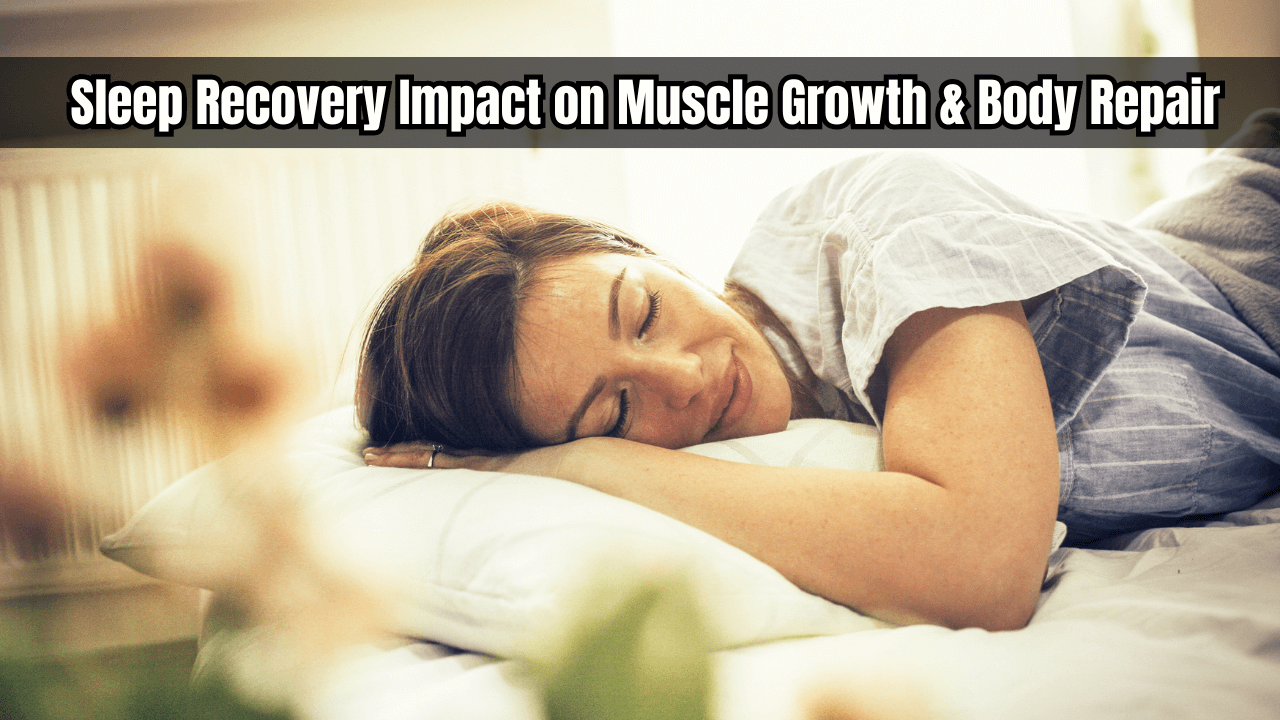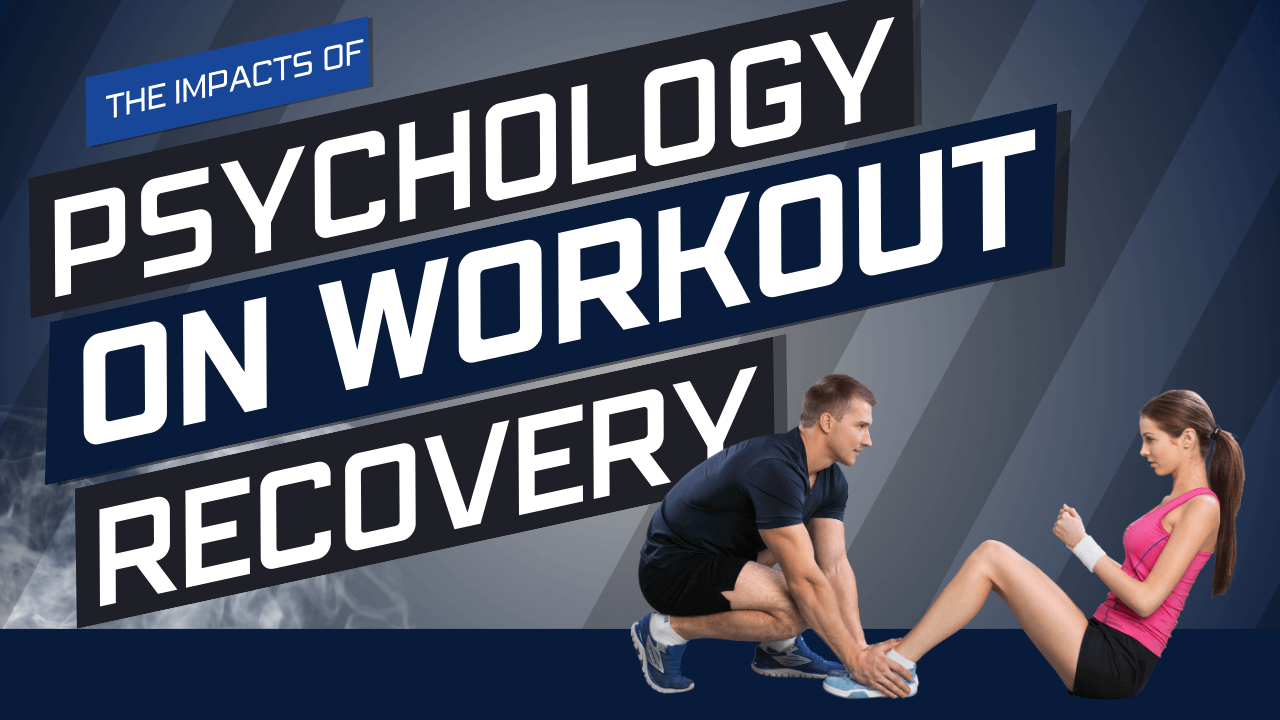Sleep is a vital part of the human body’s functioning. Its consequences extend far beyond the fatigue that lingers after poor sleep. The body releases many essential hormones for such processes during sleep, a critical step in muscle growth and body repair.
Sleep helps the central nervous system (CNS) repair itself and initiate muscle-building. Many factors can affect body repair, but this time, we will evaluate how this affects physiological functions in greater detail.
Sleep Stages and Their Impact on Recovery
Stage 1
As the first stage of sleep, people gradually move from wakefulness to a calmer state. During this phase, their eyes close, breathing and heartbeat slow down, and muscles relax.
Any slight noises, lights, or movements can easily disrupt this transition into slumber.
Stage 2
As you drift off, your body temperature drops while movements stop (eyes and muscles). Your brain waves begin to slow down – although they may continue to experience occasional activity surges. After a night’s rest, sleep specialists estimate you spend half of that time in stage 2 sleep.
Stage 3
Slow wave sleep, the deepest and most restorative stage of sleep, is when your brain consumes less energy while heightening growth hormone (GH) and ghrelin levels.
During this time frame, amyloid proteins – metabolic waste products that accumulate throughout the day – are excreted from your system. If there’s a constant interruption to this cleaning process over time, it can cause a decline in memory processing capabilities.
Additionally, during slow wave sleep, your brain’s activity lowers by as much as 75%, which explains why someone who wakes up from stage 3 typically experiences disorientation until their body adjusts to their surroundings again.
Stage 4
During this stage, the brain is more active than ever – heart rate and breathing quicken as if we were awake. A neurotransmitter called glycine immobilizes skeletal muscles and stops body movements.
This combination of elevated neurological activity and paralyzed limbs produces dreams that are far more vivid and memorable. The pattern implies that the brain’s priority is to maximize the therapeutic effects of stage 3 sleep.
If deprived, your body still has an opportunity to clear out toxins and metabolic waste, allowing you to function better while awake. Therefore, a brief nap has countless positive benefits for one’s health.
How Much Restful Sleep Do We Need?
Adults should try to sleep for at least 7-9 hours every night for optimal muscle recovery and growth. While some people may need more or less, the important thing is to ensure the quality is good.
Broken-up periods of rest can still help with physical recovery and growth. However, regularly disrupting sleeping patterns will impact performance as well.
The Benefits of a Regular Sleep Schedule
When adults practice healthy sleeping habits, their circadian rhythm stabilizes to create consistent bed and wake times. Creating an environment conducive to sleep helps promote better sleep.
When our internal timing mechanism is in sync, it can help us sleep better and feel more energized during the day. A healthy circadian rhythm usually involves a sleeping period of about seven to nine hours and an awake period of about 16 to 18 hours.
Turning off this body clock triggers sleep deprivation and fatigue. The body clock also coordinates with other bodily functions, such as metabolism and digestion.
When our circadian rhythm is off-kilter, it can disrupt these functions, leading to feelings of anxiety and depression.
Differences Between Sleep Deprivation and Sleep Restriction
Though both involve not getting enough sleep, there are some key differences.
Sleep deprivation is caused by staying up all night or pulling an all-nighter, while sleep restriction occurs when a person gets fewer hours than recommended.
While both can negatively influence muscle growth and athletic performance, sleep deprivation has a more significant impact.

How Muscles Repair During Sleep?
A. Sleep Stimulates Growth & Repair
During the deepest stage of sleep, slow wave sleep, growth hormone is secreted in much higher amounts that help to stimulate tissue growth and muscle repair.
Hormone (such as testosterone, IGF, somatotropin, and glucocorticoids) helps build muscle fibers and promote muscle hypertrophy.
B. Increases Protein Synthesis to Build Muscle Mass & Strength
Getting enough sleep is essential for muscle growth as sleep increases protein synthesis. During sleep, the body breaks down amino acids and uses them to build muscle tissue, which helps increase muscle size and strength.
C. Speeds Recovery from Muscle Damage & Fatigue
In addition to promoting muscle growth, sleep is fundamental for recovering from intense physical activity. Sleep helps reduce fatigue, speeds up the recovery from strenuous workouts, and ensures that the body has enough time to recover, which can help improve performance.
To maximize muscle recovery and growth, athletes should prioritize healthy sleep. They should try to rest for 7-9 hours every night.
Strategies to Create a Sleep-Friendly Environment
Whether you’re a seasoned athlete or just starting your fitness journey, understanding sleep can help you get the most out of your body and achieve maximum success.
A. Establishing a sleep routine
If you prioritize your sleep, it can make all the difference in achieving optimal physical fitness!
Establishing a solid sleep routine is indispensable for athletes, allowing them to accomplish their targets and operate at peak performance.
B. Reducing Blue Light Exposure Before Sleep
We should reduce our exposure to blue light at least 30 minutes before bedtime to help promote better sleep quality. Cell phones, computers, and TVs can disrupt sleep by suppressing the body’s melatonin production.
C. Eating the Right Foods at Night and Minimizing Caffeine Intake
Eating the right foods can also help improve sleep quality. Eating dinner early or at least 3 hrs before bedtime can help promote good sleep quality.
Caffeine can interfere with sleep as it blocks adenosine receptors in the brain. These are the ones that induce sleepiness. Thus, avoid caffeinated beverages late in the day and opt for caffeine-free drinks instead.
D. Exercise Regularly During the Day to Improve Sleep Quality
Studies have found that people who exercise and engage in regular physical activity tend to sleep better and fall asleep faster than those who don’t. Additionally, exercise helps to reduce stress, which can interfere with sleep quality.
Exercise helps regulate our body’s circadian rhythms and regulates hormones such as melatonin and cortisol, which can help promote better sleep at night.
E. Practice Meditation Before Sleep
Meditation can be an excellent tool for improving sleep! According to studies, regular meditation may help reduce symptoms of insomnia, lengthen your total sleep time, and increase feelings of restfulness.
Not only that, but it can also reduce stress levels and anxiety, both of which may be causing your sleeplessness in the first place! Practicing any variant of mindfulness meditation for at least 15 minutes daily can help you get to bed feeling relaxed and ready for a good night’s rest.
You might be interested in: Functional Exercises For Seniors
Conclusion
- Sleep is essential for muscle growth and recovery as it helps the body repair and stimulates protein synthesis. During sleep, the body produces hormones that can help build muscle fibers and promote muscle hypertrophy.
- Additionally, sleep helps reduce fatigue and speeds up the recovery process by giving the body time to repair the stress caused by strenuous workouts. Getting adequate sleep and eating the right foods can help ensure athletes get enough restful nights, which is required to optimize muscle growth and recovery.
- Additionally, regular exercise during the day helps regulate hormones, which can promote better sleep at night. By following these strategies, athletes can ensure the time the body needs to repair and build new muscle tissue, improving their athletic performance and helping them reach their fitness goals.
Reference:
-
- https://www.bodybuilding.com/content/the-importance-of-sleep.html
- https://ouraring.com/blog/sleep-muscle-recovery-muscle-growth/
- https://sleep.me/post/sleep-and-muscle-growth
- https://builtwithscience.com/fitness-tips/sleep-and-muscle-growth/
- https://www.fit19.com/blog/6-ways-to-get-better-sleep-for-muscle-recovery





